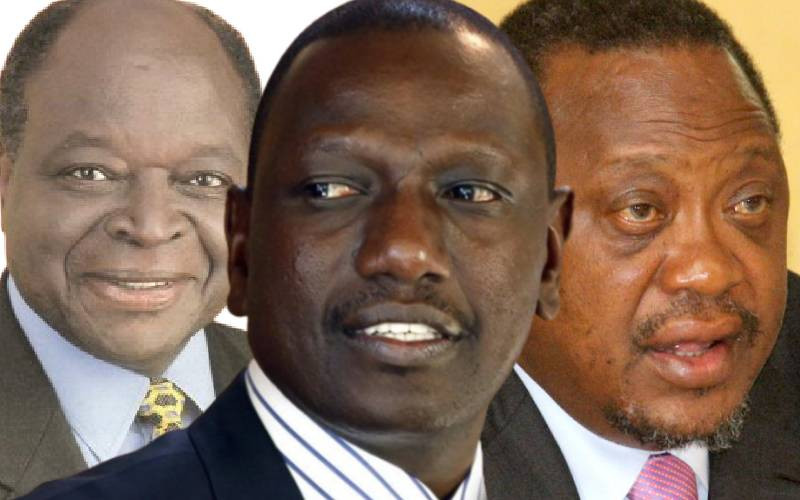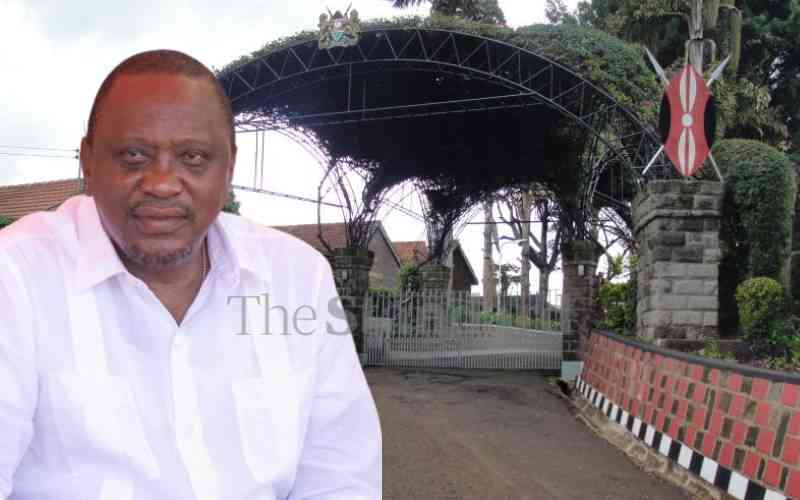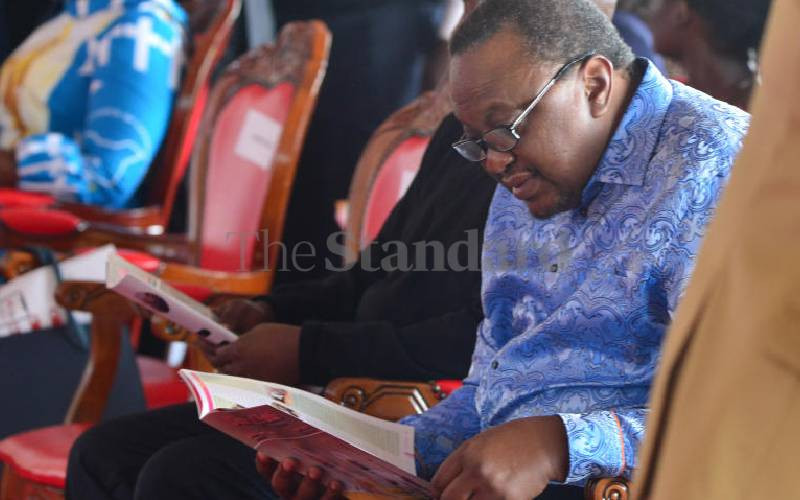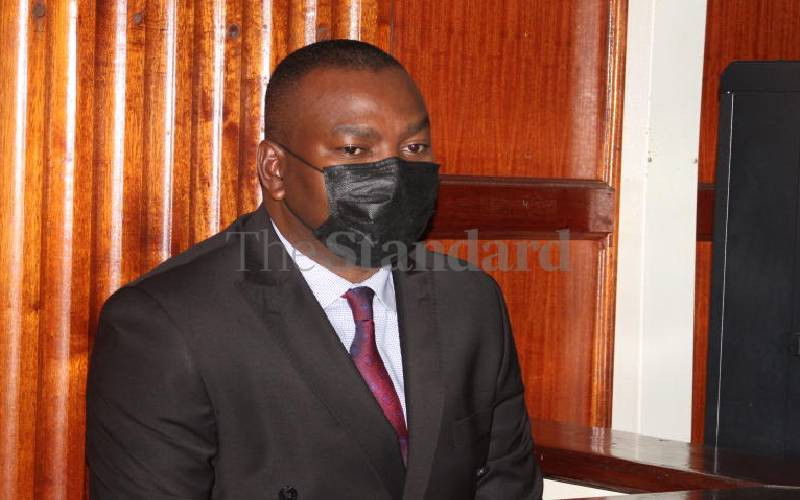
President Uhuru Kenyatta (pictured) has rolled back travel restrictions placed to tame the spread of Covid-19 as he seeks to strike a balance between containing the disease and stopping the economy from sinking to new depths.
Thirteen weeks ago on April 6, he ordered the first of such containment measures by restricting movement in and out of Nairobi, Mombasa, Kwale and Kilifi counties and imposed a dusk-to-dawn curfew for all but essential service providers.
The efficacy of the restrictions has, however, been dulled by the steep rise in the number of Covid-19 infections in recent weeks. In the week ending yesterday, July 5, the country had been recording an average of 216 new cases daily.
As of yesterday, the caseload in the country was 7,886 after testing 189,263 samples.
Today the President announced that movement in and out of Nairobi, Mombasa and Mandera counties will be lifted on Tuesday at 4am in a move expected to avert plunging the struggling economy deeper into turmoil.
The nationwide curfew will, however, be extended for a further 30 days.
"By reopening (the three counties), we must be cognisant of the fact that we are much more at risk when the restrictions were in place. We must exercise cautious optimism," President Uhuru told the nation in a televised address from Harambee House, Nairobi.
He said there shall be no movement of public service vehicles into and outside of areas previously under lockdown without the required clearance of the public health and transport departments.
"Local air travel to resume on Wednesday, July 15 in strict conformity with the guidelines of Ministries of Health and Transport," the president announced, adding that international travel will resume on August 1, 2020.
We have not yet met the irreducible minimums 100 per cent. However, we have reached a reasonable level of preparedness across our counties," Uhuru said.
He added that the eased restrictions were conditional and that the nation would revert to lockdown if health trend signals a worsening of the pandemic.
The president said the patterns of the disease would be studied for the next 21 days.
Places of worship will be opened in three weeks to 100 people for services that are not more than one hour and shall not include congregants under the age of 13 years or above the age of 58 years or persons with underlying conditions. This is whilst, Sunday schools and Madrasas will remain closed.
Restrictions on gathering in weddings, bars and political gatherings have been extended for 30 days.
Stay informed. Subscribe to our newsletter
"I remain alive to the socio-economic challenges facing our country. History has taught us that Covid-19 is not the first economic disaster, there were many more before it," Uhuru said.
"Jobs have been lost, businesses have closed and livelihoods endangered. And this is the sorry state of things the world over. But history has taught us that the Covid crisis is not the first health disaster with such enormous economic challenges. There were many more before this one," Uhuru said.
He went on: "It is not enough for the government to pump resources into the economy using stimulus instruments, as we have done. Such efforts will go to waste if the people do not co-create solutions with the government."
"We must remember that the coronavirus is invisible. We can only evade it by engaging the invisible army."
On reopening of schools, the president said that within 24 hours, the education ministry shall notify the public on the resumption of the 2020 Academic Calendar for Basic Education and Tertiary Institutions.
"The Ministry of Health, in conjunction with the Ministry of Industrialization, Trade and Enterprise Development shall establish protocols for the resumption of the importation and sale of imported/second-hand clothes," the president added.
Extension
The phased re-opening of the economy brings to an end a 30-day extension of the nationwide dusk-to-dawn curfew and lockdown in parts of the country ordered by President Uhuru on June 6. At the time, Kenya had 2,600 Covid-19 infections.
In the address a month ago, he also extended a ban on travel into and out of Nairobi Metropolitan Area, the counties of Kilifi, Kwale, Mombasa and Mandera to today July 6.
The curfew was, however, reviewed to begin from 9 pm to 4 am.
He said the review would enable Kenyans to have a full workday schedule
The President said experts had warned that if the country rushed to reopen the economy, the virus would run down its health system.
"I wanted to reopen our economy but experts feel that a lot still needs to be done before we fully remove the restrictions," he said.
President Uhuru said experts indicated that if the country reopened without proper protocol, Covid-19 cases would hit over a million at the end of the year with over 70,000 deaths.
According to the Head of State, experts drawn from the Health Ministry and other agencies, had warned that if the restrictions were relaxed by 20 per cent, there would be 200,000 infections and 30,000 deaths by December.
And that if relaxed by 40 per cent 300,000 new infections would be recorded with 40,000 deaths in November.
Safe re-opening
President Uhuru also directed the Ministry of Education and that of Health to issue and publish guidelines for reopening in September 2020.
He said the ministry would announce the new school calendar in mid-August.
Education stakeholders have since cautioned against the hurried re-opening of schools. They want primary and secondary schools to re-open in January.
In June, Uhuru also extended the ban on all public gatherings including political rallies for another 30 days to contain the rising cases of Covid-19.
Also extended was the ban on international travels.
Uhuru said that the country had to contain the infections and the number of deaths before all the Covid-19 restrictions were lifted.
"To open up the economy, the infections must be contained and the number of deaths must be headed downward but this is not the case."
 The Standard Group Plc is a
multi-media organization with investments in media platforms spanning newspaper
print operations, television, radio broadcasting, digital and online services. The
Standard Group is recognized as a leading multi-media house in Kenya with a key
influence in matters of national and international interest.
The Standard Group Plc is a
multi-media organization with investments in media platforms spanning newspaper
print operations, television, radio broadcasting, digital and online services. The
Standard Group is recognized as a leading multi-media house in Kenya with a key
influence in matters of national and international interest.
 The Standard Group Plc is a
multi-media organization with investments in media platforms spanning newspaper
print operations, television, radio broadcasting, digital and online services. The
Standard Group is recognized as a leading multi-media house in Kenya with a key
influence in matters of national and international interest.
The Standard Group Plc is a
multi-media organization with investments in media platforms spanning newspaper
print operations, television, radio broadcasting, digital and online services. The
Standard Group is recognized as a leading multi-media house in Kenya with a key
influence in matters of national and international interest.









